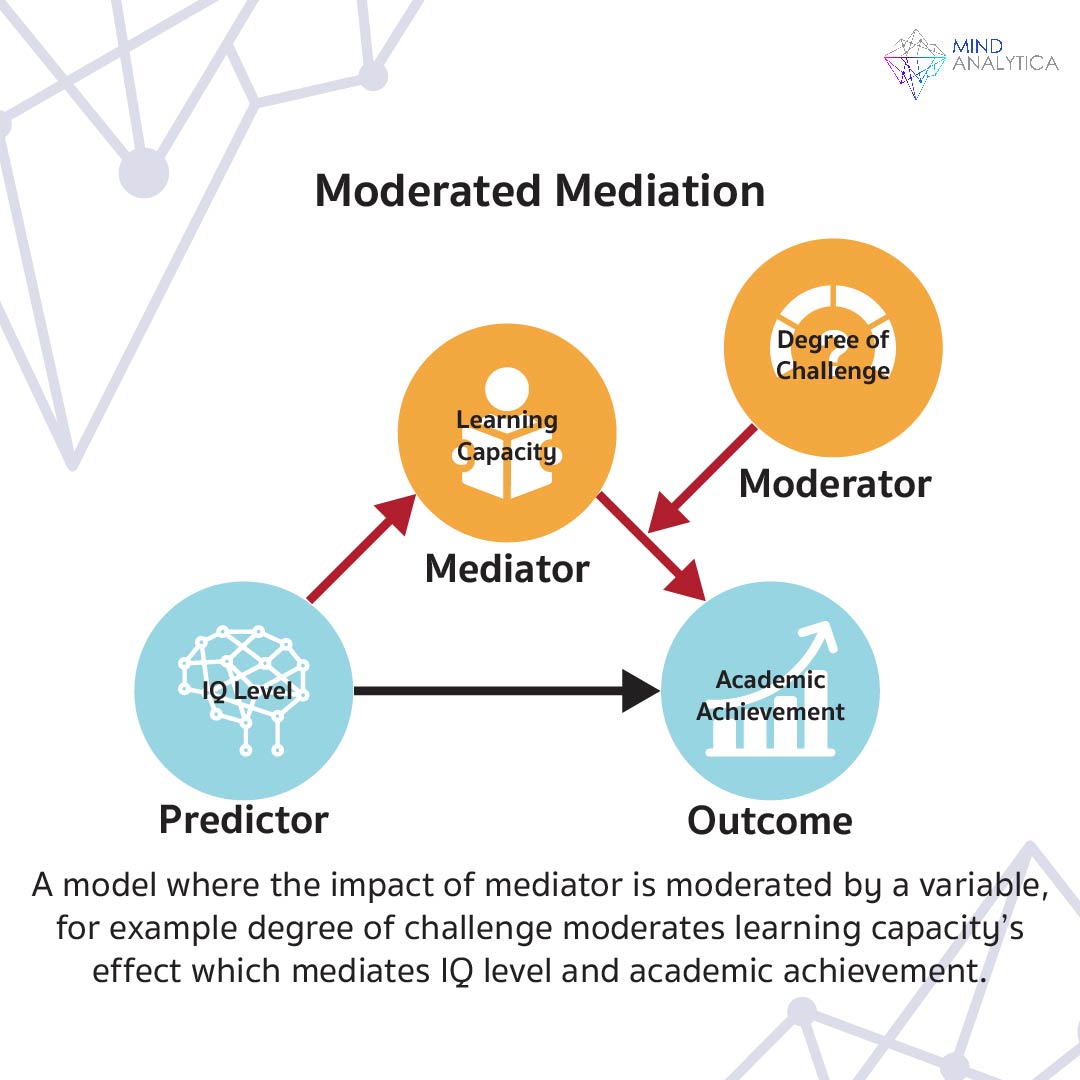Moderated Mediation
19 มิถุนายน 2566 - เวลาอ่าน 2 นาที
Consider a mediation model example, such as the influence of intelligence quotient (IQ) on learning ability, and how this learning ability affects work performance. The influence of IQ on learning ability can depend on other variables. For example, if the learning material is complex, a higher IQ may significantly impact learning ability. However, if the content is straightforward, IQ might not affect learning ability, as everyone can understand it. In this case, the effect size within the mediation model depends on the moderating variable. This model is referred to as a moderated mediation model.
A moderated mediation model describes a mediation model where the effect size of variables within the model is altered by another variable. Extending the IQ example, the influence of learning ability on work performance may be moderated by other variables, such as how closely the learned material relates to the job. If the job isn't related to the learned content, the influence of learning ability on work performance is minimal. But if the job is highly related to the learned content, learning ability will significantly impact work performance. This example is another form of the moderated mediation model.
Another example involves jobs with unclear roles, which can decrease job satisfaction and increase the intention to quit. Possible moderating variables include salary. If the salary is high, unclear roles may not affect job satisfaction and, therefore, not influence the intention to quit. However, with a low salary, unclear roles could further decrease job satisfaction and increase the intention to quit. In this case, the model is a moderated mediation model where salary is the moderator, role clarity is the independent variable, job satisfaction is the mediator, and intention to quit is the dependent variable.
To analyze data for a moderated mediation model, you can use regression analysis, though it can be somewhat complex as it involves several steps. Andrew Hayes' "process" data analysis package can facilitate the analysis of moderated mediation models. Analysts can choose a model that fits the relationship between their variables and input them into the analysis. The results will reflect whether the selected model is suitable and whether there's any mediation or moderation as hypothesized.
You can learn more about how to analyze moderator variables from various online resources that provide statistical knowledge for the general public. One of these resources is provided by a team member and CEO of MindAnalytica, Dr. Sunthud Pornprasert, who is an adjunct professor in the Faculty of Psychology at Chulalongkorn University. His website, https://sunthud.com/, offers lessons that cover regression analysis, which is the foundation of moderation analysis, as well as intermediate and advanced statistics.



